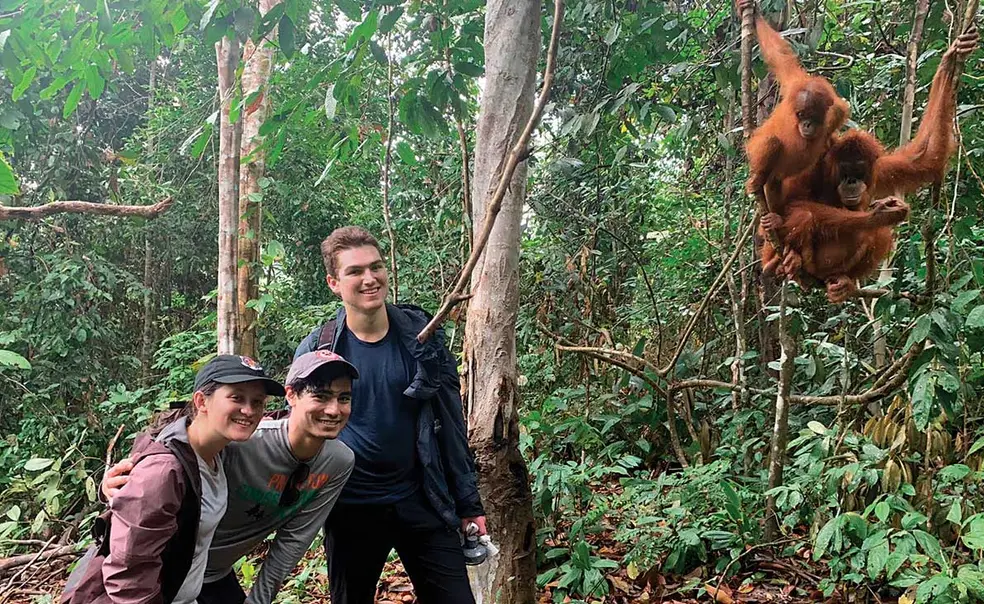Student Documentary Aids Rainforest Conservation in Indonesia
For decades, the rainforests on the Indonesian island of Sumatra have been under siege from development by pulp and paper producers and palm-oil plantations. The Thirty Hills Restoration Concession, run by the World Wildlife Fund (WWF), is working to reverse that trend with sustainable, traditional land uses, such as honey harvesting.
Six students from the Princeton Conservation Society traveled to Thirty Hills in the summer of 2019 to explore the region and meet with Indigenous people and conservation experts. With support from WWF and Princeton’s High Meadows Environmental Institute, the students produced a documentary film about their visit, Across Thirty Hills, which premiered in an online screening and discussion in January. A virtual event for Princeton alumni will be held April 20 (to register, click here).
The Conservation Society’s interest in Sumatra dates back to 2018, when students began looking for a way to help protect the habitats of tigers in Southeast Asia. “We realized pretty early on that in order to have a tangible impact, we’d need to partner with an organization that was working on the ground,” said Arjun Krishnan ’21, associate editor of the film. A conversation with Carter Roberts ’82, WWF’s president and CEO, helped the students connect with the Thirty Hills team.
On their visit to Thirty Hills, the students observed orangutans, tracked elephants through the forest, and had a close encounter with swarming bees as they filmed a honey harvest. They also learned the complex challenges of balancing the livelihoods of local communities with the habitat needs of threatened species.
Turning hours of footage and interviews into a half-hour film was a challenge, particularly after the pandemic sent team members away from campus, but editor and ecology and evolutionary biology major Zoe Rennie ’21 is proud of the final cut and the response it received from faculty at the January screening.
“Hearing the feedback from professors wasn’t just in-the-moment gratifying,” Rennie said. “It was also reassurance that we’re on the right track and doing something that is contributing positively to the Princeton community.”












No responses yet